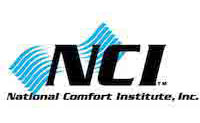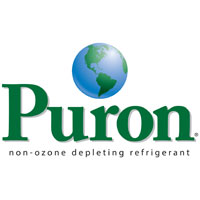Turning off the AC
For those concerned more about energy use as opposed to quality of life, then turning off the AC would be the better option. For most people however, there are several considerations to keep in mind before leaving the unit off for the whole day. Depending on the size of the home and the equipment’s capacity, it could take some time before the house cools down to a comfortable temperature before one comes back. During the summer, the house could also become very hot and make life hard for pets.
A programmable setback thermostat allows one to automatically program their AC to run less when the house is unoccupied. This device has multiple time and temperature settings (for both heating and cooling mode) for various times of day and days of the week. Energy Star-rated thermostats come readily programmed for normal weekend and weekday use.
To make the most of this gadget, one could set the wake, sleep and return temperature to their desired level. The leave temperature should be set about 5 to 10 degrees higher than the desired level. The return time should also be set for about one hour before when one comes back. If the house doesn’t feel comfortable on entry, lowering the temperature or setting an earlier time could help. With some fine-tuning, one can achieve good energy savings without sacrificing too much on comfort.
Energy Efficiency Tips for Hot Days
When it’s very hot, most AC units run round the clock to maintain a reasonable indoor temperature. There are a few things one can do to lower the equipment’s power consumption. Such include cleaning the filters, vents and registers regularly, using a ceiling fan and closing the curtains during the day. Old HVAC devices typically consume more power as compared to their modern counterparts. Replacing an old unit with a newer Energy Star-rated A/C with a high SEER rating could help one realize significant savings on their energy bill.
A/C Fan Settings
Setting the fan to automatic as opposed to running it continuously helps save more energy. There may however be some valid reason why one may want to let the fan run continuously. This can be done to reduce the risk of fan failure, reduce dust and humidity or improve air circulation in the house.
Using Ceiling Fans
Ceiling fans used in conjunction with an A/C can help save energy. The fans create a chilling effect which allows for the A/C set point to be raised without affecting comfort. Because ceiling fans use less energy as compared to an air conditioning system, one can save about 20-50% this way.
Saving Energy Without Using a Timer on the Thermostat
Turning down the thermostat can save a significant amount on the heating bill. It can also be lowered during unoccupied hours and at night. Registers and vents should also be kept clean to enhance unobstructed air flow. Vents to unoccupied rooms should also be shut. If the house has a fireplace, the doors and dampers should also be shut. One also needs to insulate ductwork in unconditioned areas, such as the attic and crawlspaces. It should also be checked frequently for leaks. Plastic window insulation kits and a whole-house humidifier will also help save energy.
Heating Options
Space heaters are better at saving energy because one only heats a single room as opposed to baseboard heaters which heat the entire house. This however only applies when one is comparing between electrical devices. Steam baseboard heating would be cheaper because natural gas is cheaper than electrical energy. Follow us for more articles that your HVAC systems running comfortable and efficiently.













